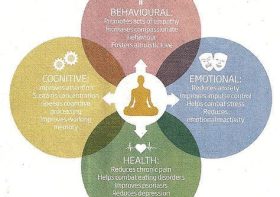How Sleep Affects Weight Loss and Tips for Better Sleep

Sleep is a vital component of our overall well-being, and it plays a crucial role in both physical and mental health. However, it’s often overlooked when it comes to weight loss and maintaining a healthy lifestyle. In this article, we will explore how sleep can affect weight loss and provide some practical tips for getting better sleep.
The Link Between Sleep and Weight Loss
Research has shown that there is a strong connection between sleep and weight management. Lack of sleep can lead to weight gain and hinder weight loss efforts. Here are a few reasons why:
1. Hormonal Imbalances
Sleep deprivation can disrupt the production of key hormones that regulate hunger—ghrelin and leptin. Ghrelin stimulates appetite, while leptin suppresses it. When you don’t get enough sleep, your ghrelin levels increase, making you feel hungrier, and your leptin levels decrease, resulting in reduced satiety. This hormonal imbalance can lead to overeating and weight gain.
2. Increased Cravings
Not getting enough sleep can also affect the reward centers in your brain, making you more susceptible to cravings for high-calorie and unhealthy foods. Sleep deprivation affects the prefrontal cortex, the area responsible for decision-making and impulse control, making it harder to resist unhealthy food choices.
3. Slower Metabolism
Studies have shown that sleep deprivation can slow down your metabolism. When you’re sleep-deprived, your body produces less human growth hormone (HGH). HGH is responsible for maintaining muscle mass and stimulating fat metabolism. As a result, a slower metabolism can make it more difficult to lose weight.
Tips for Better Sleep
Improving the quality and duration of your sleep is crucial for weight management and overall health. Here are some practical tips to help you achieve better sleep:
1. Stick to a Consistent Sleep Schedule
Try to establish a regular sleep schedule by going to bed and waking up at the same time every day, even on weekends. This helps regulate your body’s internal clock and improves the quality of your sleep.
2. Create a Calming Bedtime Routine
Engaging in relaxing activities before bed can signal to your body that it’s time to wind down and prepare for sleep. Consider incorporating activities such as reading a book, taking a warm bath, or practicing meditation into your bedtime routine.
3. Create a Sleep-Friendly Environment
Your sleep environment plays a significant role in the quality of your sleep. Make sure your bedroom is dark, quiet, and at a comfortable temperature. Invest in a good-quality mattress, pillows, and bedding to enhance your sleep comfort.
4. Limit Exposure to Electronics Before Bed
The blue light emitted by electronic devices such as smartphones, tablets, and computers can interfere with your sleep. Try to avoid using these devices for at least an hour before bed, or use blue light-blocking glasses to minimize the impact.
5. Avoid Stimulants
Avoid consuming caffeine, nicotine, and alcohol close to bedtime, as they can disrupt your sleep patterns. Instead, opt for a soothing herbal tea or warm milk to help you relax before sleep.
6. Get Regular Exercise
Regular physical activity can improve sleep quality. However, avoid exercising too close to bedtime, as the stimulation can make it difficult to fall asleep. Aim for at least 30 minutes of exercise earlier in the day.
7. Manage Stress Levels
Stress can significantly affect your sleep quality. Explore stress management techniques such as deep breathing exercises, yoga, or journaling to help calm your mind before bed.
8. Watch Your Diet
Avoid heavy meals, spicy foods, and excessive fluid intake close to bedtime, as they can cause discomfort and disrupt sleep. Opt for light, easily digested snacks if you feel hungry before bed.
The Bottom Line
Sleep is not just a luxury; it is essential for weight management and overall well-being. By understanding the link between sleep and weight loss, and implementing these practical tips for better sleep, you can maximize your chances of achieving your weight loss goals. Prioritize sleep, and both your body and mind will thank you.


